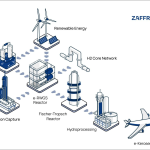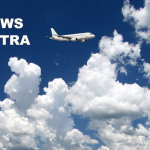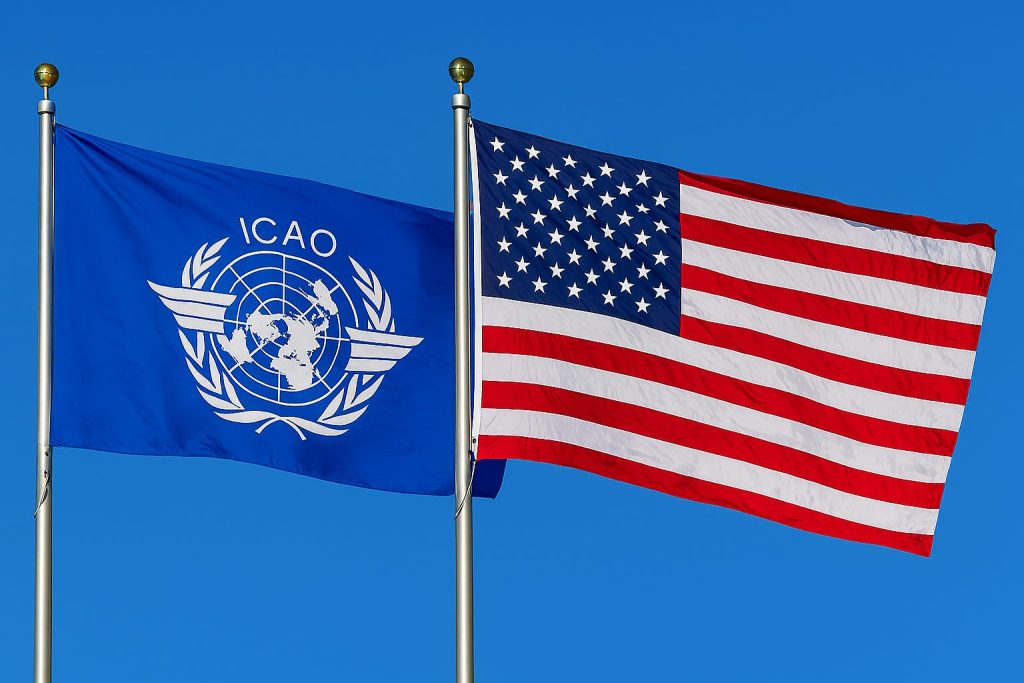In an address to member state delegates on the opening day of ICAO’s 42nd Assembly, US Transportation Secretary Sean Duffy rebuked the UN civil aviation agency for wasting “critical resources” on social programmes and climate financing initiatives, saying they had “nothing to do with the safety, security and efficiency of the global air transportation system.” He said “the rapidly approaching revolution in aviation” had not been anticipated by ICAO and the organisation’s work programme was “years behind where it needs to be”. He also took aim at certain countries that wanted to impose solidarity levies on air transport to help raise climate finance for poorer nations. The United States has submitted a working paper for consideration by the Assembly that requests ICAO’s governing Council to engage with other UN bodies “to discourage the proliferation of such taxes”.
In his speech to the 42nd Assembly, Duffy said: “We come together with a clear purpose: to ensure that ICAO delivers on its fundamental principles of safety, security and efficiency.
“I am here today on behalf of President Trump to deliver a hard truth. It is the view of the United States that over the years this body has extended itself far beyond its proper mandate – wasting critical resources on social programmes or climate financing initiatives work that has nothing to do with the safety, security and efficiency of the global air transportation system.
“ICAO was formed with extensive American support around a shared understanding that all nations benefit when they can align their standards to facilitate the flow of goods and people around the world. That principle drives economic activity, connects our markets and creates thousands of jobs. Around the world, it’s clear some are losing sight of that principle.”
He accused the agency of endless bureaucracy, with proposals stalled “in layers of unnecessary process and backroom obstruction,” adding: “Meanwhile, accountability, transparency and responsiveness to the will of the Organization’s member states continue to suffer.”
However, he praised the progress of the reforms made by ICAO Secretary General Juan Carlos Salazar following the “disastrous leadership” of his predecessor, China’s Fang Liu.
“But there is more work to be done to streamline and optimise the Organization for the future. Our ability to achieve this reform will factor into how President Trump and the United States evaluate support moving forward.”
In a veiled threat over the United States’ funding obligation to ICAO, Duffy added: “Our ongoing financial commitments come with the basic expectation that this Organization can and will accomplish its core responsibilities.”
In an Assembly working paper (WP/181), the United States warned member states over emerging air transport taxes for raising revenue for climate and development initiatives, such as those proposed by the Global Solidarity Levies Task Force and supported by a nine-country “premium flyers coalition”.
“While these objectives may be well intentioned, such measures undermine the integrity and efficiency of the global air transportation system,” says the paper. “They also distort competition in the global air transportation sector and disproportionately harm developing and tourism-dependent economies.
“These measures run counter to established ICAO principles and recent Assembly resolutions, including A41-21, which urges member states to prevent the disproportionate targeting of international aviation for general climate finance purposes.
“The international aviation sector already has a robust climate framework in place through ICAO. Rather than layering new and potentially duplicative or destructive taxes onto the sector, efforts should focus on supporting innovation and preserving the connectivity that underpins global development.”
Added Duffy in his speech: “Why should international air transportation be singled out? Why should users of the global air transportation system be forced to provide a new source of revenue to any one country – all completely unrelated to the safety, security and efficiency of our skies?
“That is not fair to any of the member states here today, and the United States is not afraid to call it out for what it is.”
The Transportation Secretary made no direct reference to ICAO’s international carbon offsetting scheme, CORSIA, nor ICAO’s net zero by 2050 Long Term Aspirational Goal (LTAG).
In April, the US withdrew from climate negotiations at ICAO’s sister UN agency the International Maritime Organization (IMO), saying in a State Department statement it would not agree to an international environmental agreement “that unduly or unfairly burdens the United States or harms the interests of the American people.” The statement warned of retaliatory measures against IMO member states that supported the ‘Net-Zero Framework’. The Dutch government was reported in early September to have received a verbal warning of an imposition of tariffs and other measures if it voted for the proposal at an upcoming IMO session in October.

Christopher Surgenor
Editor














More News & Features
New initiative formed to accelerate SAF adoption and production in the Pacific Northwest
ICAO releases first-ever growth factor for airlines’ CORSIA offsetting requirements
Airfreight giants DHL Express and FedEx announce big US SAF deals
LanzaJet produces first next generation, ethanol-based SAF at flagship Freedom Pines refinery
ICAO and IRENA launch Finvest platform to connect sustainable aviation projects with financiers
Countries gather for triennial ICAO Assembly, with a focus on CORSIA and SAF scale-up